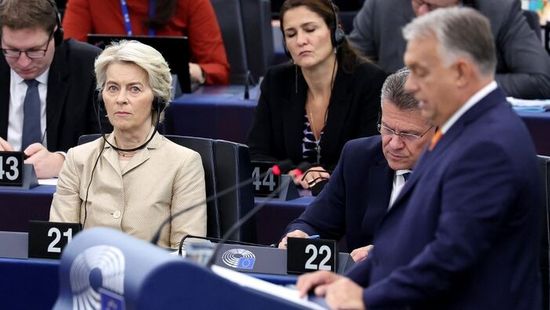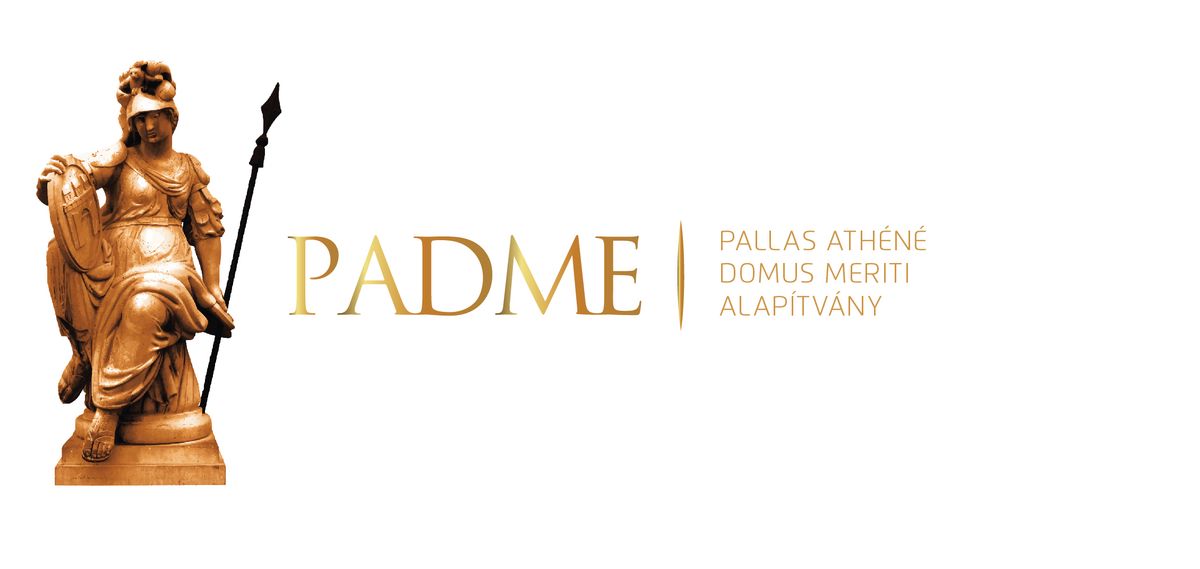Dokumentumok bizonyítják: Brüsszelben arra készülnek, hogy a Fidesz nyeri meg a választást

Az elemző szerint ráadásul az is egyértelmű, miért nem lenne rájuk szükség, ha Magyar Péteréket tartanák esélyesnek.

Things will undoubtedly change now that the UK has gone. Without its powerful voice, the other member nations will either progress faster towards ‘ever closer union’, or someone else will have to step into the UK’s shoes. Either way, it will deeply affect the future relationships between nations within the EU – pointed out by Keith Lowe, British writer and historian.

Let me allow to start our conversation with a simple but I think quite difficult question. Looking at Europe through the eyes of a historian what story can be told and whose story is it?
There is no one history. That is a mistake that almost everyone makes, even some historians. I like to imagine the history of Europe as a huge mountain that stands somewhere in the centre of the continent. When you view it from Britain it looks like a giant pyramid. But when you look at it from Hungary, is looks more like a cube. From a distance it looks smooth, but when you get up close you can see that it is covered in forests, or meadows, or deep craters. In some places it’s easy to climb, but in other places there are impassable cliffs. And so on.

I could tell you that the story of Europe is the story of gradual integration, and I’d be right – but if you come parts of Slovenia or Slovakia it looks more like a story of repeated disintegration, and those are also right. I could say it has been a history of one bloody war after another – but what about all the trade and travel and cooperation that has also taken place at the same time?
The search for a single history is pointless.
The best we can do is to try to gather as many different stories as possible and put them together in the best way we can. We’ll never get to see the whole truth, but we might get to see something that looks a bit like it.
So your point is that the European history has no other choice but to include national history since this is the story of nations. However, what we could see in the past couple of decades is the emergence of a hostile attitude towards the nations of Europe. Brexit might be one of the painful and very costly consequences of such an attitude. How do you see the emerging concept that aims to sideline the role of nations in the EU?
Again, there is more than one thing happening here. European history is indeed a story of nations – but nations have always had to compete with supranational bodies, whether that is the EU or the Austro-Hungarian Empire, or the Catholic Church, or whoever. When nations and supranational bodies work together, everything is rosy. When they argue, things are more difficult. That’s the way it’s always been. It’s a matter of where the balance of power lies.
Your question implies that the EU’s hostility towards nationalism is a recent thing, but actually I think that they have been fairly consistent in their hostility. After the Second World War, ‘nationalism’ was a dirty word in much of Western Europe. One of the main reasons why the organization was originally set up was to make sure that the sins of nationalism could never be repeated. That memory is still there, right at the heart of the EU.
Actually, I think it is the attitude of the member nations that has changed. They are much less happy to cede sovereignty to the EU than they used to be. In Western Europe, memories of the Second World War are fading, so people in the west are much less inclined to see nationalism as a bad thing.
In eastern and central Europe there has never been the same distaste for nationalism as there has been in the west
– rather, it is supranational control that is seen as the bad guy.
So, in my opinion, it is the member states that have been much more assertive towards the EU in recent years, not the other way around. If the EU is reacting to that – well, that is only to be expected. I have no idea which side will win. Perhaps neither side will win, and we will continue stumbling ineffectually from one crisis to another. And perhaps that wouldn’t be such a bad thing. If the EU were stronger – or if individual nations had more power – then they could quite possibly make things worse, not better.
Although it is the privilege of historians to make a judgement on the decade of 2010 but I think it is already fair to say that Europe has been losing it. Not only has the EU been hit by several still unresolved crises, but it already lost one of its key Member States, the second largest economic power in Europe. The Hungarian Prime Minister in a recent online international conference pointed out that the balance of power of nations inside the European Union has now dramatically changed as the United Kingdom left. What in your view could be the impact of Brexit on the EU?
Yes, you are right, the EU has not covered itself in glory in recent years. However, there are at least two sides to every story. You could argue that it is the member states that bear the responsibility for recent crises: if the EU had been able to act quickly and decisively, like individual nations can, then it would have been able to mitigate the financial crash, stop the Eurozone crisis, regulate the flow of immigrants… and so on. But the EU does not have the power to do any of these things, because the member states refuse to give it those powers. The other side of this argument is, of course, that if the EU had such powers, they would have forced all kinds of measures on individual nations, and these would have been so unpopular that there might have been some kind of revolution! So nothing is simple.
But undoubtedly things will change now that the UK has gone.
The UK was always in favour of the EU as a trading bloc, but against further political and economic integration.
Without that powerful voice, the other member nations will either progress faster towards ‘ever closer union’, or someone else will have to step into the UK’s shoes. Either way, it will deeply affect the future relationships between nations within the EU.
Let alone Brexit, there are still many visible cracks in the EU. The crack is visible between the “old” Europe before the Eastward enlargement and the “new” Europe after the Eastward enlargement. On the one hand one can still experience a lack of understanding or sometimes outright contempt from West or at least from certain ideologies in the West to East. On the other hand, Central European countries now have risen to the challenge and they have a clear vision on the future of Europe. What in your they can give to Europe?
I think that the word ‘contempt’ is much too strong. I have heard similar views from people in Poland. But every country always thinks it is better than its neighbours, and so I’m sure the ‘contempt’ goes in both directions. I like to think of the EU as a kind of club full of grumpy old men. For years and years this club had the same members, who all had similar views – they play cards, and smoke cigarettes, and have the same arguments every day. And it’s all very comfortable. But then suddenly a whole lot of new members join. The original members want to make them welcome, but can’t help being annoyed by all the noise and inconvenience that comes along with them. The new members bring different card games that they don’t understand. They settle some of the old arguments, but bring new arguments of their own. Then someone complains that they don’t like cigarettes, and so suddenly a smoking ban is introduced…
Enlarging any group always brings problems. The East has to understand that the West has welcomed them into their club, and it is only natural that they are going to grumble now that things are changing. So have some patience with them! But the West has to understand that it’s not their club any more. It belongs to all member states equally, new and old. Change must come whether you like it or not.
This sounds like old news now, but it’s not. Sure, this process started happening years ago, but it’s still not over yet. Change always takes much more time than most people think.
All three major EU institutions recently gave their blessings to the Conference on the Future of Europe that aspires to provide a forum for discussion about the potential reforms of the EU as well as about the future of the European continent. What grand strategy in your view European nations ought to pursue to make their continent successful and competitive? What in your view can provide a fresh start or new impetus for Europe?
First of all, they have to agree what their communal challenges are, and then commit to working together to meet those challenges. If we’re all busy arguing amongst ourselves, then nothing will get done.
Russia, China and the USA are all major competitors in different ways.
Climate change, immigration, Covid-19 – it’s easy to write a list. In some ways, it almost doesn’t matter what the challenges are, as long as we all agree on them, and can all contribute towards dealing with them. That’s the basis of any team-building exercise. Working together as a team must be Europe’s main priority right now.
To help that happen, we need to stop talking endlessly about the past. There are way too many references to history in our political debates. That might seem like a strange thing for a historian to say; but, to be honest, I rarely hear politicians saying anything useful about the past. They use history as a political tool, and often don’t care if the ‘history’ they quote to us is simplistic, incomplete, or even factually incorrect. Referring to history is often just another way of stirring up resentments between us, and stopping anything useful being done. Politicians should spend their energies trying to build a better future. That’s their job, isn’t it? And they should leave history to the historians.
***
A cikk a Pallas Athéné Domeus Educationis Alapítvány támogatásával valósult meg.
